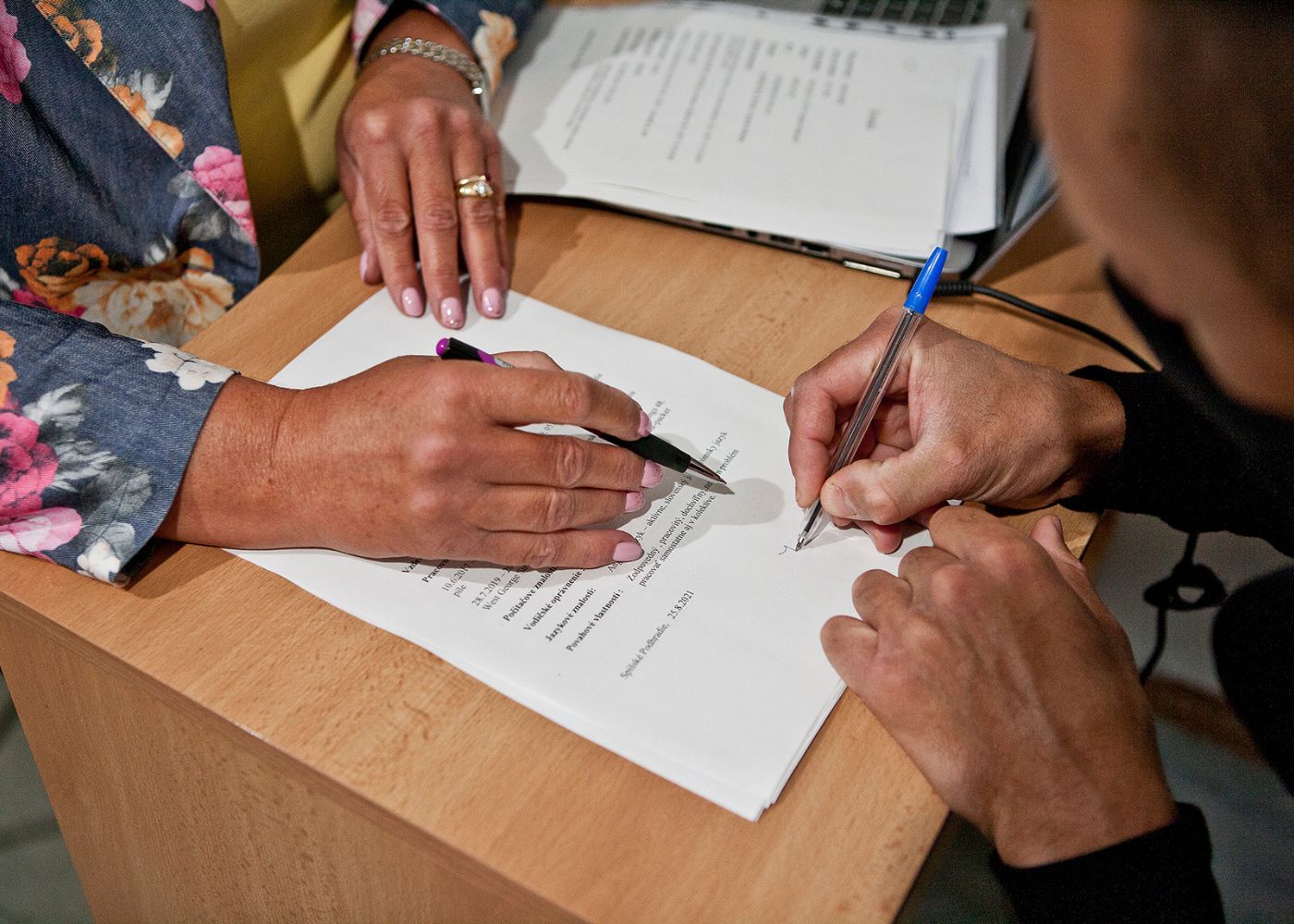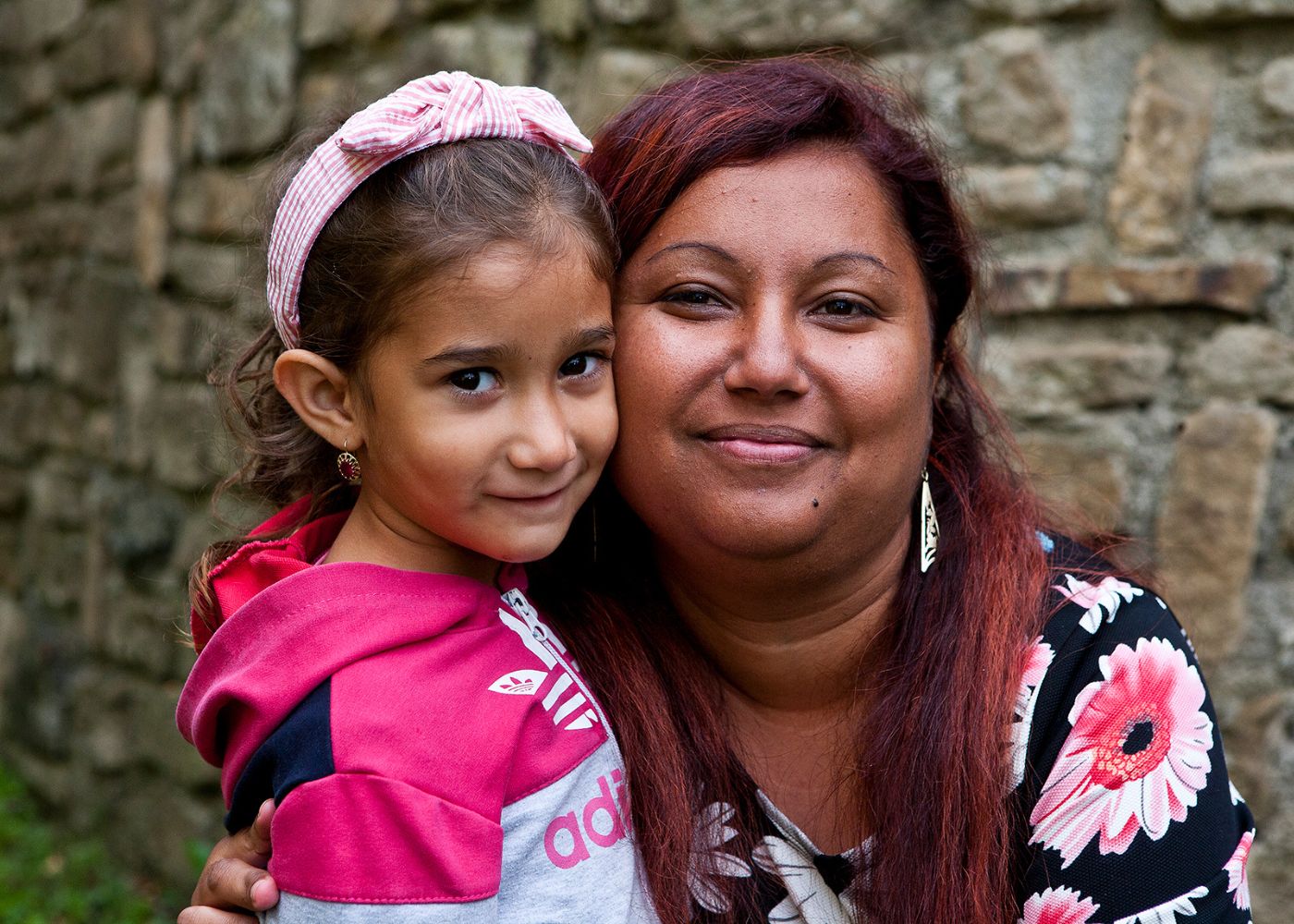Crocheting also builds mutual trust, says our colleague about the women’s group in Petrovany
“When a Romani man comes home from work, he eats and sits. But a Romani woman can’t rest until the children lie down and sleep. You can’t just go somewhere to drink coffee. The house must be welded, cleaned, otherwise there is a fire on the roof. He has to chop wood, or go somewhere else to get the wood, bring water. They often have beautiful houses inside and out, but when there is no water, it is difficult. And in the house it’s the same all the time: Mom, this and Mom, that. The same thing over and over, the women are tired,” describes the daily routine of Roma women living in exclusion, our colleague Gitka from the community center in Petrovany. At first glance, the meetings of the women’s group look like a gathering of friends over coffee and shared hobbies. However, the two hours that the women have reserved for themselves once a week at the community center gives them much more. They get a space of mental rest that they don’t find at home due to their daily responsibilities. They also create a safe circle in which they can share their worries and joys with other women.

Not only a space for sharing, but also for professional help
Our task is to give women a voice, because they are not used to thinking for themselves. We are based on the experience of our association, where we use many didactic games, books and, let’s say, handicrafts. But they are only the basis of the whole activity, the topics that we start talking about emerge from them. Sometimes it is difficult to explain some abstract concepts, for example, that someone should concentrate or endure. And with these games and books, we can materialize it. For example, look, was she thinking about something else now? And that is concentration. If you try it somewhere else, things will go better for you. And through these games and readings, we also try to get to women’s topics. Janka Urban, Vyrovnávanie šancíWe implement women’s groups (in addition to Petrovany, also in our communities in Roškovce and Kojatice) in cooperation with the civic association Vyrovnávanie šancí. Thanks to the help of female experts, local women also get to talk about the topics of women’s health and parenting skills during informal meetings outside. Gradually, they learn something extra not only about themselves, but also how to open up, communicate better and emancipate themselves.



I encourage them to talk to the children at home. When they have a free time I advise them to not spend it just by sitting in front of the TV. They can also play some kind of game together, for example, pexeso, or solve puzzles together. One of the women recently confessed to me that they rarely talk at home. She gives the children something to eat and then cleans up again, washes them, and so on. I tell them how important it is that they talk to the children. For example, when a child comes home from school, unless his mother asks him, he doesn’t know what happened there. And the child might even say on his own if there was a problem or praise, but he doesn’t know how to start. Many times it is enough for the mother to be interested in how it was at school and the child is already talking.One of the recent activities was a story book. It was a box that the women made and decorated at the center and took home. It was supposed to serve as links on which children and parents wrote what they would like to experience together, for example a visit to the cinema or the zoo.












